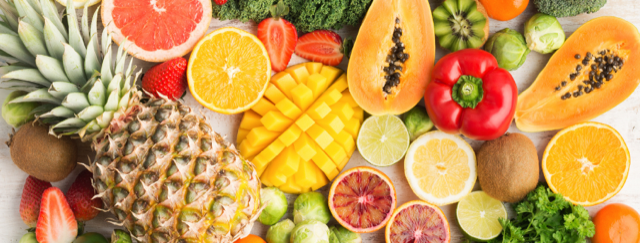What should my diet consume of for healthy collagen production?
Collagen is the richest protein in our body and although we think of skin when we think of collagen, it is also an important component in our bones, muscles, tendon, ligaments, blood vessels and tissue.
We can have a decrease in our collagen production at the early ages of 25, as the body will start to slowly lose its structural protein leaving our skin dry, loose and with fine lines. It eventually worsens due to diminished nutrient absorption and general ageing. Poor diet, stress, high blood sugar and excess alcohol can have major effects in our collagen production.
Here are 5 nutrients required for healthy collagen:
1. Iron
Iron helps to preserve many vital functions in the body, including general energy and focus, the immune system, and the regulation of body temperature. The benefits of iron often go unnoticed until a person is not getting enough. Food that you can add to your diet can be spinach, lentil, red meat, poultry, beetroot, egg, and peanuts.
2. Omega-3 fatty acids
Omega-3 fatty acids are essential nutrients found in certain foods. They can serve to regulate the skin’s oil production, improve balanced hydration, minimise breakouts and signs of aging. Omega-3s can also help soften rough, dry skin, and have a soothing effect on irritation and dermatitis. Try an include Eggs, fish, milk, tofu, legumes, poultry, lean meats into your diet.
3. Zinc
Zinc is an important nutrient for healthy, glowing skin. Zinc has anti-inflammatory properties and is useful for inflammatory skin diseases, such as acne, rosacea, eczema, and ulcers. Zinc is a co-factor for collagen production, which means that it helps to activates the amino acids essential for collagen synthesis.
4. Vitamin C
Vitamin C is essential for collagen production. Enzymes Prolysyl and lysyl hydroxylase are responsible for stabilising and cross-linking the collagen molecules. Foods that you could add to your diet can be cherries, berries, kiwi, citrus, tomatoes, and cauliflower.
5. Magnesium
Magnesium is a co-factor for collagen production. Magnesium is required at the early stages of collagen production for protein translation.
To keep your skin glowing all year round we recommend taking Vita-sol’s Infinity and Collagen boost to ensure your skin is getting the nutrients that it needs for healthy collagen production.
Please contact us for more information and to discuss your specific individual needs!

© 2024 La Peau
